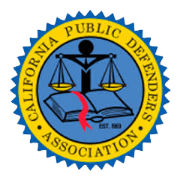
Ever woken up to find an unexpected hole in your bank account? Startled, a chill of dread washes over you. You’re facing Identity Theft and Credit Card Fraud. A sudden realization of fear washes over you as the harsh reality sets in.
I’m talking about the silent criminals who swipe your credit card number off some obscure database or pick pocket your personal details from cyberspace without even breaking a sweat. Fear not, there is still a chance!
In our journey today, we’ll walk through the murky waters of Identity Theft and Credit Card Fraud laws in California and reveal how these invisible bandits operate. We’ll arm ourselves with knowledge on reporting these crimes swiftly to authorities like FTC.
Next, we’ll shift our focus to preventive actions. We’ll tackle how to secure Wi-Fi networks from cyber thieves and protect those all-important social security numbers. If you are interested in knowing more about facing Identity Theft and Credit Card Fraud charges, stay and continue reading.
Table Of Contents:
- Understanding Identity Theft and Credit Card Fraud in California
- Laws and Penalties for Identity Theft and Credit Card Fraud in California
- Protecting Yourself from Identity Theft and Credit Card Fraud
- Reporting Identity Theft and Credit Card Fraud
- Seeking Legal Defense for Identity Theft and Credit Card Fraud Accusations
- Preventing Identity Theft and Credit Card Fraud
- FAQs in Relation to Identity Theft and Credit Card Fraud
- Conclusion
Understanding Identity Theft and Credit Card Fraud in California
Identity theft is like a silent burglar, quietly slipping into your life and stealing your personal or financial information. It can strike without warning, with common types including credit card fraud where thieves use stolen credit card numbers for unauthorized purchases.
The damage doesn’t stop there. They might even open new accounts under your name – a nasty surprise you only discover when debt collectors start calling about existing accounts you didn’t open or bills arrive for items you never bought. But fear not, understanding the warning signs of identity theft and credit card fraud is the first step towards protecting yourself.
Laws and Penalties for Identity Theft and Credit Card Fraud in California
In the Golden State, identity theft laws are strict. Any individual identified to be utilizing another person’s private data without approval could confront serious repercussions. But it doesn’t stop there.
The law also frowns on credit card fraud, which includes activities like unauthorized use of a credit card or obtaining someone else’s card details deceitfully. Under federal law, those found guilty can spend up to 15 years behind bars.
If you’re accused of these crimes in California, knowing your rights is vital because potential penalties are steep. Depending on the offense, punishments could range from hefty fines to jail time.
Bear in mind that being convicted has lasting implications beyond just legal repercussions—it could damage your reputation permanently too. So understanding these laws thoroughly is not just important—it’s essential.
Protecting Yourself from Identity Theft and Credit Card Fraud
You’re smart, you lock your house. But do you secure your credit card info with the same diligence? Here’s how to level up.
The Role of Credit Bureaus in Protecting Your Identity
Credit bureaus are like digital guard dogs for your finances. Credit bureaus are like virtual sentinels, monitoring for any signs of unauthorized access or financial fraud.
Regularly checking your credit report can reveal if someone is playing foul with your funds. Spotting unexpected changes early helps prevent more damage.
How to Use Social Media Safely
Social media isn’t just for cute cat videos; it’s also a hunting ground for scammers looking to steal identities or commit credit card fraud by exploiting shared personal information.
To stay safe, think before sharing those vacation pics while still away – could an opportunistic thief see this as an invitation?
Beware too when using public Wi-Fi networks. Remember, safety first.
Reporting Identity Theft and Credit Card Fraud
At the first sign of identity theft or credit card fraud, take immediate action. It’s crucial to report the issue immediately to your credit card company, which can start an investigation.
The Role of the Federal Trade Commission in Reporting Identity Theft
After alerting your credit card issuer, turn your attention towards reporting it to federal agencies. The Federal Trade Commission (FTC) plays a significant role here as they handle reports of these crimes on a national level.
If you’ve fallen victim, file an ‘Identity Theft Report’. This is more than just a notification; it sets into motion legal rights that provide critical protections for victims.
This process may seem daunting but fear not. There are resources available such as steps outlined by FTC on their website under ‘Steps To Help You Recover’.
Seeking Legal Defense for Identity Theft and Credit Card Fraud Accusations
When accused of identity theft or credit card fraud, you need to understand your rights. An accusation doesn’t equate guilt.
Discovering the correct lawful help can have a gigantic effect in exploring these entangled cases. A qualified lawyer should be knowledgeable about the regulations associated with ID theft and credit card fraud, aiding you to devise a successful defense plan.
The law respects the principle that everyone deserves fair representation, no matter what they’re accused of. It’s crucial to engage a lawyer who will fight passionately on your behalf while upholding this principle.
Preventing Identity Theft and Credit Card Fraud
Safeguarding your private data is the essential factor for warding off identity theft and credit card fraud. Protect your social security number, as it is a valuable asset to those looking to steal identities. Be vigilant about who you give it to.
Becoming aware of how children’s information can be stolen is also crucial as they are often targets too.
Your credit card details need protection like a newborn baby. Don’t let them get into the wrong hands by practicing secure online habits such as avoiding public Wi-Fi when entering sensitive data or shopping online. And remember, even if you’re using private Wi-Fi, ensure that it’s password protected.
Monitor your bank account statements regularly; any suspicious activity could be an early warning sign of theft or fraud identity. Always keep tabs on where your cards are – physically losing one opens up opportunities for thieves.
FAQs in Relation to Identity Theft and Credit Card Fraud
Is credit card fraud an identity threat?
Absolutely, credit card fraud is a form of identity theft. It happens when someone uses your card info to make unauthorized purchases.
How can you protect yourself from identity theft and credit card fraud?
To shield against these crimes, guard personal info like social security numbers, review bank statements for suspicious activity and use secure networks online.
Do police handle credit card fraud?
The local police do take reports on credit card fraud but the Federal Trade Commission (FTC) typically handles such cases at a federal level.
What happens when credit card fraud is reported?
You report it to your bank or creditor first who then shuts down the affected account. Next, they start investigating while you file a formal complaint with FTC.
Conclusion
Identity theft and credit card fraud – a silent epidemic we’re battling. But now, you know the enemy better.
You’ve seen how these crimes unfold in California, right down to the dirty details of data breaches and stolen credit cards. We’ve looked at ways to spot identity thieves before they strike by understanding warning signs like unfamiliar account statements or unexpected credit inquiries.
We’ve uncovered steps for reporting such incidents swiftly to authorities like FTC, thus helping prevent further damage. And yes, we didn’t shy away from those challenging discussions around ATM skimming risks and public Wi-Fi safety either.
But remember: prevention is always your best defense against this form of cyber crime. Secure your social security number, safeguard personal information and monitor your financial activities regularly.





